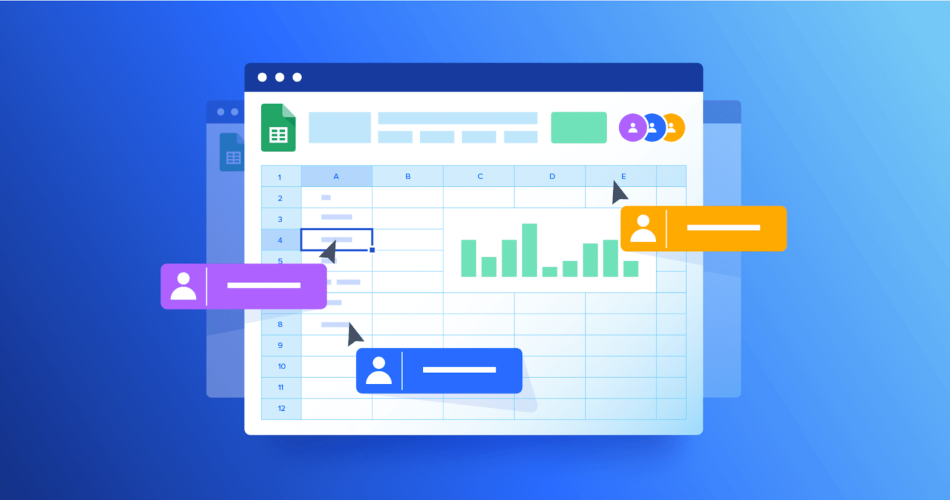Effective data management is essential for any organization aiming to enhance operational efficiency and accuracy. A Gartner study indicates that poor data quality costs organizations an average of $12.9 million each year. This figure underscores the substantial financial consequences of poor data management. It emphasizes the need for effective data management systems, which require the expertise of skilled professionals like Excel programmers.
Excel programmers are central to improving these systems by developing advanced tools specifically crafted for your business requirements. Their skill in customizing and improving data solutions makes them indispensable in data-driven organizations. This expertise translates into tangible benefits, such as faster retrieval and better organization of data, which directly impact decision-making speed and quality. Let us delve into how an Excel programmer can transform your data management strategy.

Optimizing Data Entry Procedures
Data entry typically involves monotonous and error-prone tasks. A well-trained Excel programmer can mitigate these issues by automating the data entry workflow. Utilizing sophisticated Excel formulas and VBA macros, reduces repetitive tasks, freeing up staff to engage in more high-level operations. Excel programmers are also adept at creating customized forms that enforce specific data entry protocols, ensuring the reliability and uniformity of the data collected.
They can further implement automated notifications to alert team members about any discrepancies or omissions, thereby enhancing the integrity of data. These improvements in data entry processes can lead to significant reductions in operational costs and increased data usability across departments. Such automation not only accelerates the data entry process but also markedly diminishes the likelihood of errors.
Enhancing Data Analysis with Custom Functions
Custom Excel functions can transform basic spreadsheets into powerful data analysis tools. A good Excel programmer can design functions that specifically address the unique needs of your business, allowing for more precise and efficient analysis of your data. These customized functions can automate complex calculations, saving time and reducing errors. For instance, a business that needs to analyze seasonal sales patterns might benefit from custom functions that automatically adjust for seasonal variations, providing clearer insights into performance trends.
These functions can be particularly advantageous in industries where timing and market responsiveness are crucial, such as retail or financial services. This customization enables managers to make better decisions based on fast and reliable data reports.
Integrating Data from Multiple Sources
In the current climate where data is sourced from numerous origins, an Excel programmer can efficiently consolidate these diverse data streams into a cohesive spreadsheet. This consolidation provides a consistent view of information, essential for swift and knowledgeable decision-making.
Streamlining data integration also lightens the burden on your IT staff, reducing the hours dedicated to manual data combination. Effective consolidation helps in minimizing the risk of data silos, promoting a more collaborative and transparent information environment. Techniques such as crafting macros to import data from external databases and APIs ensure all necessary data is centrally located and updated constantly.
Implementing Advanced Data Visualization Techniques
A clear visual representation of data is crucial for quickly grasping complex details. Excel programmers can utilize the sophisticated visualization features of Excel to produce tailored charts and graphs that surpass standard designs. These visual tools are designed to emphasize particular data trends and irregularities, proving critical for both reporting and strategic decision processes.
Enhanced visual tools help in communicating complex data sets in a straightforward manner, which is invaluable in stakeholder meetings and strategic planning sessions. Utilizing interactive visualizations, stakeholders can engage directly with the data, analyzing metrics to pinpoint underlying causes of observable trends. Tailored dashboards are designed to show essential metrics, offering an immediate overview of performance.
Optimizing Spreadsheet Performance
Handling large datasets in Excel can lead to performance issues. An Excel programmer can optimize spreadsheet performance through various techniques. This includes optimizing data storage formats, using more efficient formulas, and implementing Excel’s Power Pivot features to manage large volumes of data.
These optimizations are crucial not only for enhancing user experience but also for ensuring that data handling remains manageable as the business scales. These steps are crucial in maintaining speed and responsiveness, ensuring that users can access real-time data without delays. These improvements keep the spreadsheet responsive and reliable, even when processing enormous datasets or conducting complex calculations.
Ensuring Data Security and Compliance
Security is a paramount concern when managing business data. An Excel programmer can enhance the security of your data management system. Methods include implementing password protections, encrypting files, and setting user permissions to limit access to confidential information. Proactive audits and updates to these security protocols are essential to respond to emerging security challenges effectively.
Additionally, maintaining rigorous security practices is instrumental in building trust with customers and stakeholders who are increasingly conscious of data privacy. Furthermore, programmers can confirm that your data management methods are in full compliance with pertinent data protection laws, safeguarding your organization against possible legal challenges.

Conclusion
An Excel programmer brings critical skills that can profoundly alter how your organization handles its data. By automating tasks, securing information, and ensuring regulatory compliance, the advantages are extensive and can notably enhance both efficiency and precision. Considering the substantial economic losses attributed to inferior data quality, which can reach into the trillions, investing in proficient Excel programming is not merely advantageous; it is crucial. Engage with a skilled Excel programmer today to unlock the potential of your data and drive your business forward. Think about how you may use these skills in your own company to fully utilize your data.
